This interview with Roman Rindberger is TrumpetScout’s first feature of a classical trumpeter. Since joining Mnozil Brass he has risen to become one of the one of the most visible trumpet players in the world. His journey to the great concert halls of the world was a bumpy one, and it led him through some deep valleys.
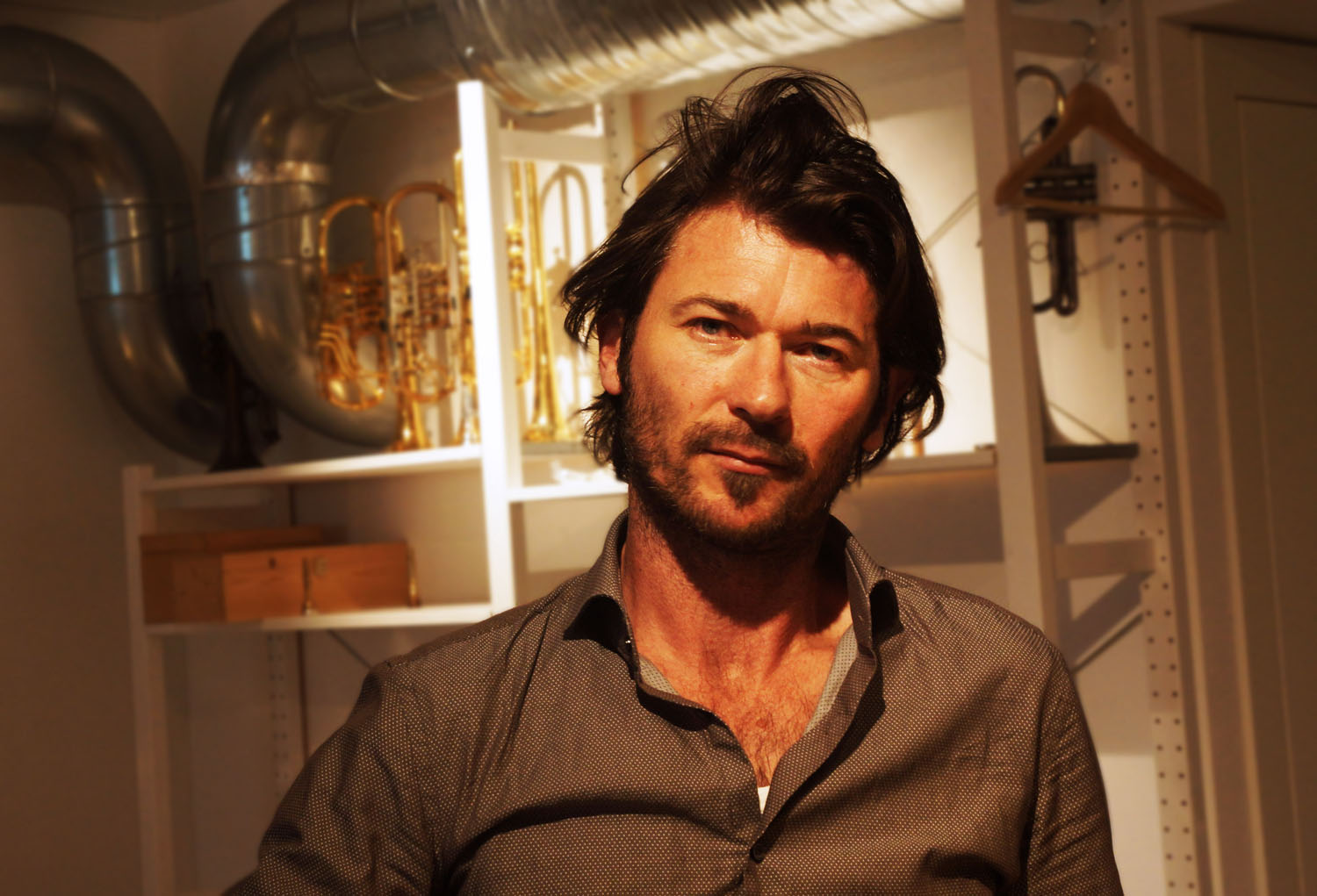
If you were to type the search RR in the internet, one would eventually get to the cluster “Roman Rindberger age” as a suggested search. But there are no answers to be found. Trumpet Scout closes this particular Google hole; he was born in 1973. That puts him in the middle as far as his Mnozil colleagues are concerned, but nevertheless he always plays the roles of the young, smooth Latin lover. He does retain a youthful appearance, and everything about him gives the impression that has always lived on the sunny side of Trumpet Street.
The father studied trumpet. Who’s going to follow him?
Roman grew up in Zell am Moos, Austria, near the Mondsee (anyone driving from Salzburg to Vienna drives past the beautiful Mondsee lake). He began playing the trumpet at age 6. He and is older brother fought over his father’s old trumpet. The little one practiced secretly at first, and ended up playing for his father, even into his later music studies (almost like a second school), and followed his father’s footsteps. Roman loved music. He didn’t like to practice, but he loved to accompany his father to his teaching, his wedding gigs, he joined the village band his father conducted, and accompanied him to his folk music gigs as well. In time, Roman grew, but he remained a student of his father, even up until the start of his studies at the Mozarteum in Salzburg at age 17. He cherished the quality of his father’s teaching.
Rindberger: a new embouchure, the end of the song
After two years at the Mozarteum, Roman felt he was stuck, and asked his teacher for a new push, a new direction. Both felt that the source of the problem was the limitations of his embouchure: he played naturally to one side, and not straight out. This is something that today might have been left alone, but then, it was thought to be a flaw. They were both in agreement that he needed an embouchure change.
The change was made, but the hoped for improvement – after an expected, but temporary regression – didn’t come. In the meantime, Roman had a teaching position at a Salzburg music school that helped him pay for his schooling. His playing suffered so badly during this period that he couldn’t even play for his students. In spite of an offer to extend the teaching position, he resigned, because he felt that he had no business teaching.
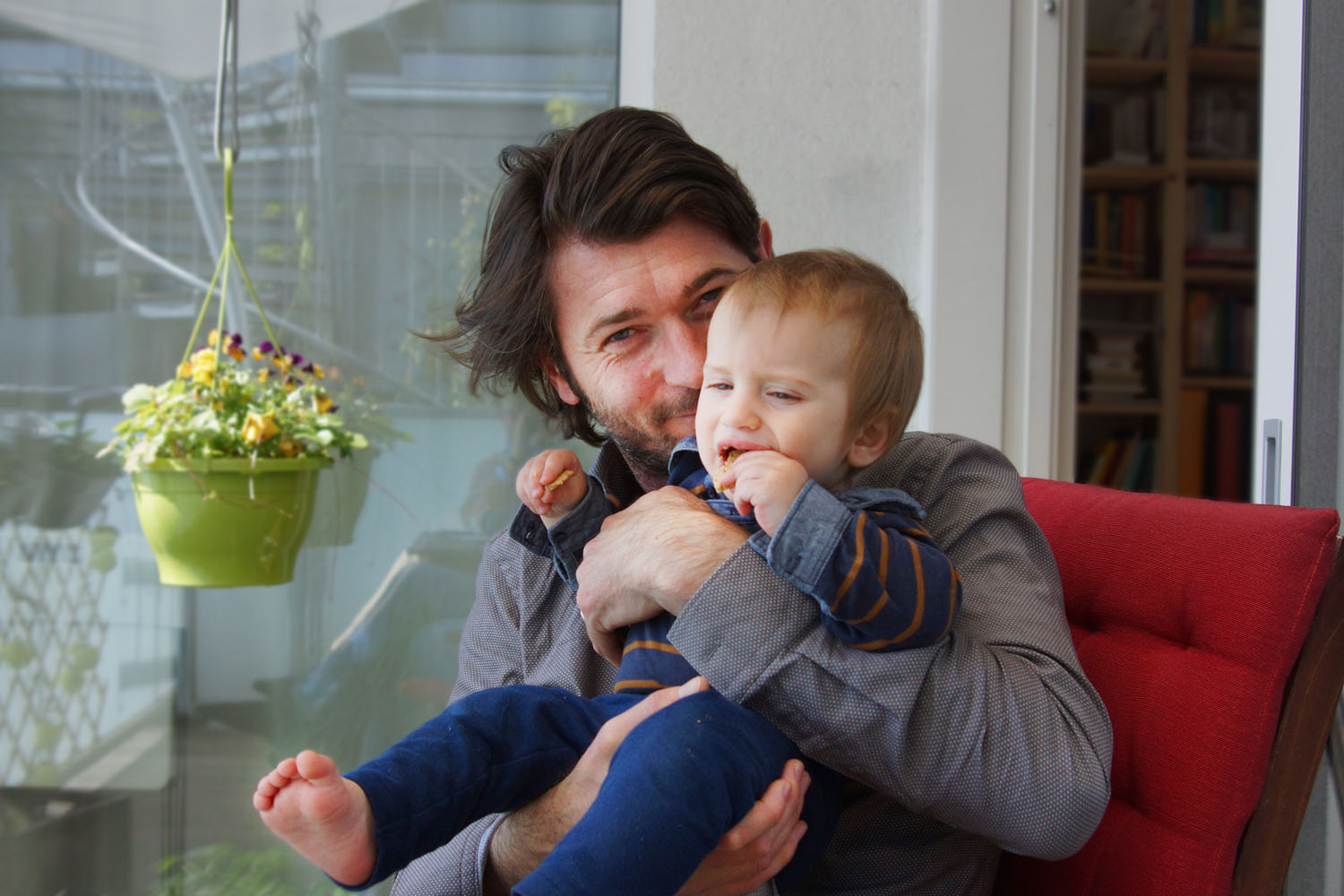
For months he asked everyone he met for advice, and was racking his brains all the time for a solution. He found himself in a crisis: he was a trumpeter who couldn’t play. All of this came to a head during a talk with a colleague at the Mozarteum. He said he didn’t think he could play anymore and needed help. The advice: “Go see Malte Burba.”
Malte Burba to the rescue
Burba promised to take care of him. There was still six months until his Final Jury, and Roman commuted each week for a lesson from Salzburg to Mainz, Germany. Once, after not following Burba’s advice 100%, he was sent home after 5 minutes. But from then on he did exactly as he was told. His first instruction: “Play like you did before the embouchure change”.
The next low blow: Once more from the top
Thanks to the help of Malte Burba, and by going back to his original setting, he passed his exam. Now, the next mammoth task was placed before him: Burba wanted another 180 degree turn from him, saying, “Let’s change your embouchure again, but this time we’ll do it right.” Roman was now 19, and had put a losing streak behind him that would have made many a professional trumpeter call it quits. He refused to give in however, and moved to Mainz, and studied with Malte Burba for the next three years.
Slow recovery, and a return to Austria and Hans Gansch
Without a doubt Roman needed those three years. A new embouchure takes time and progresses slowly. At some point he began to feel his old strengths coming back, but now with the difference that everything worked more efficiently. Where before there were severe fluctuations that his practicing made even worse, there was now much more stability.
Like Till Brönner, Roman Rindberger owes his success to Malte Burba, and says, just like the famous German jazz trumpeter, that without his mentoring he would not be playing today.
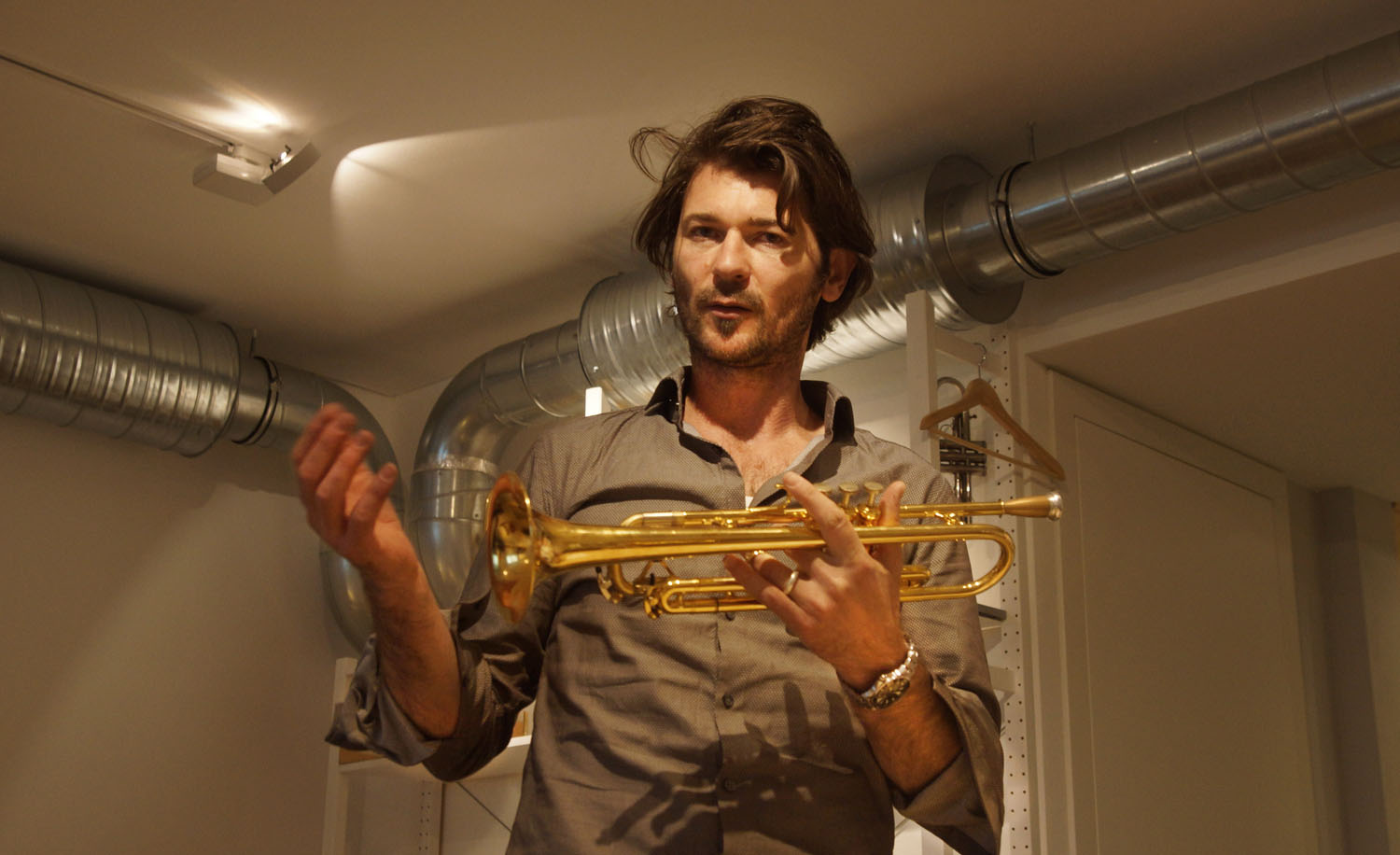
In the meantime, Hans Gansch began teaching at the Mozarteum and on Roman’s return Gansch brought a focus on musicality rather than technique. Roman finished his schooling there two years later. He then entered the Masters program in Basel, Switzerland, and studied with Klaus Schuhwerk.
In the orchestra pit
At the age of 24 Roman earned a stipend (Ed: a type of professional work-study program common to European orchestras and opera houses) with the Zürich Opera. Shortly after that he won a similar stipend with the Berlin Philharmonic, which was a dream come true: He play was to in a symphony orchestra, and in one of the world’s best at that. As happy as he was about that, wining an audition at the Bavarian Opera in Munich was even better.
Return to Berlin and to Wiesbaden
Roman felt he was too green for the position in Munich so, after a few months, with a heavy heart, he resigned, for multiple reasons. Luckily he could still return to Berlin, but just a few months later he won the position of Solo Trumpet at the Opera in Wiesbaden.
The call: Thomas Gansch is on the phone
Roman had a great time in Wiesbaden. Nevertheless after a few years he was ready for a change. At exactly the right time, Roman received a call from his homeland: Thomas Gansch wanted to know if Roman wanted to join Mnozil Brass. Roman jumped at the chance – maybe because he loves adventure – and has been a member of the most spectacular brass ensemble in the world since 2004.
Roman Rindberger: soloist with Mnozil, teacher in Vienna
His work with Mnozil Brass naturally turned his life on its head. Instead of sheet music – memory, instead of the opera pit – the stage, instead of orchestra rehearsals – travel, hotels and many new experiences. Special challenges for the orchestral trumpeter: Billy Mays’ “The Theme from the Green Hornet” and Harry James’ “Concerto for Trumpet”.
This new chapter in his life required a move to Vienna, which for a long time was on his personal wish list. His life as a self-employed musician also set free a hitherto unimagined creativity, something that even today is evident from his very positive attitude to life. Roman enjoys the free time that he has through his work with Mnozil Brass. On one hand it allows him to pursue sports, like mountain-biking, windsurfing and especially boxing, in which he finds similarities to the requirements of trumpet playing and practice.
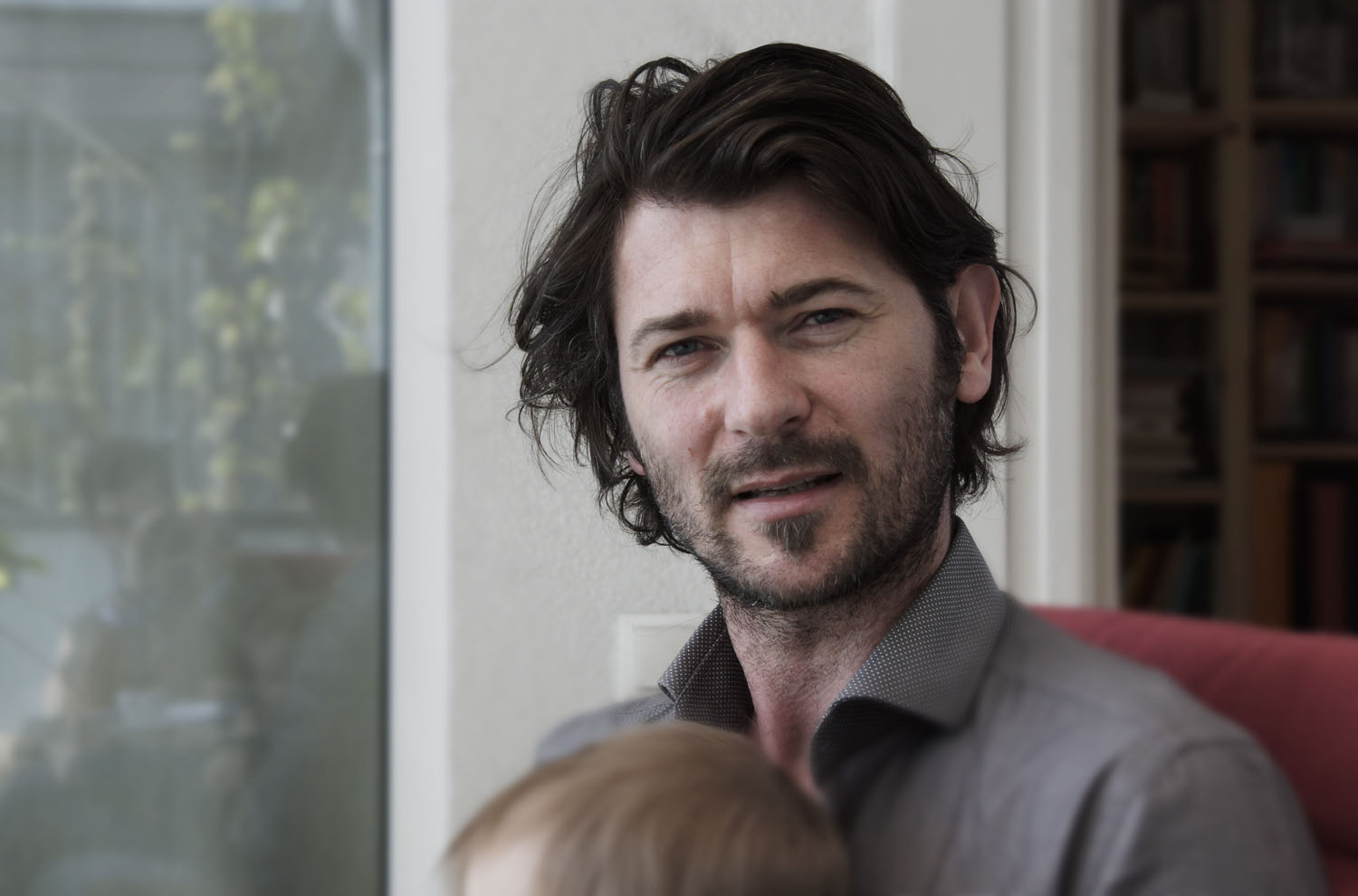
On the other hand this free-time also affords him time for teaching – his great passion, besides his family. As opposed to earlier in his career, he now feels fully qualified. Ultimately, Roman can now help someone else out of a crisis, because he himself has overcome one. He sees these lost chances and struggles in his career as something necessary, leading to the understanding, not only of the mechanics of trumpet playing, but the physical, neurological, psychological, and sociological as well – all of which play a significant roll in this profession.
Roman sees his experience with different teachers, each of whom had differing approaches to the instrument, as being something that enriches his own teaching. He also fosters contact with great soloists, like Gabor Tarkövi, Sergei Nakariakov, and Hakan Hardenburger, each of whom has presented master classes at the MUK Private Conservatory in Vienna, where he has taught since 2012.
Roman Rindberger as trumpet developer
It’s noticeable that Roman is the only Mnozil trumpeter to play a piston instrument. While it is true that he teaches with a Schagerl rotary trumpet, for the pyrotechnics of Mnozil, he prefers the piston. He has worked for years on his personal horn with Schagerl, and the result, the Roman Empire is done. This is a horn with significant resistance, but very efficient. TrumpetScout has been allowed to pay-test the model and can attest that it is a horn with a big core, and works well for either classical or big band settings.
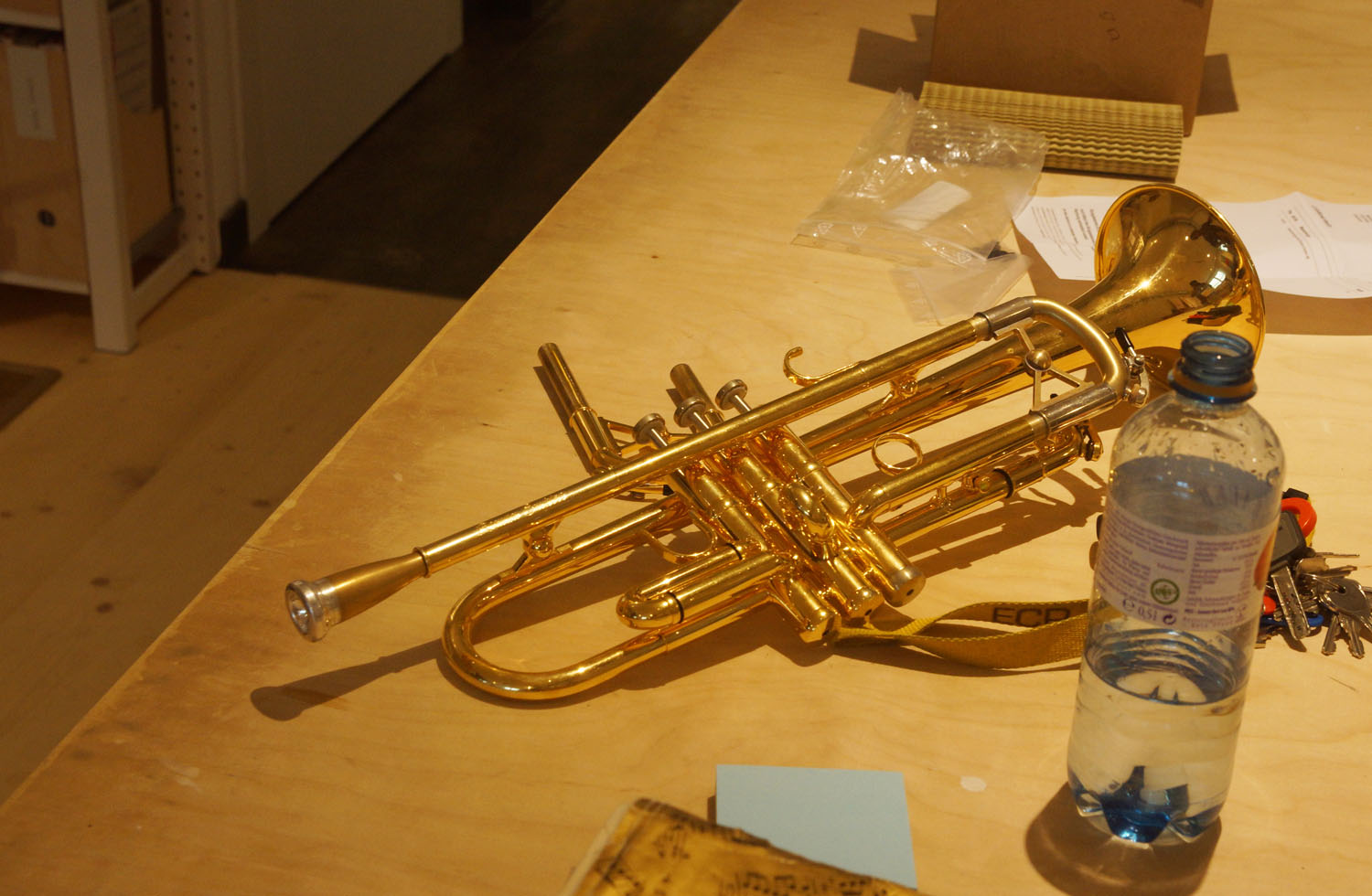
There is also a corresponding Roman Empire mouthpiece from Breslmair, which has a G2 rim, but with special cup size and backbore, which allows him to cover the entire range comfortably.
Roman Rindberger: a great fellow, with hard-earned wisdom
TrumpetScout was amazed by this guy’s story: one presumes that successful people have always been successful and have always had it easy. Roman’s story can give hope to all who struggle and founder, yet won’t give up their goals. It should also warn those whose success has gone to their heads. For Roman Rindberger is in reality quite different than the image he portrays on the stage – A great guy, with great expertise in all facets of the trumpet.
Kindly translated from German by Jack Burt

